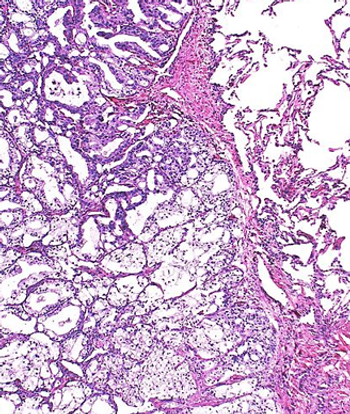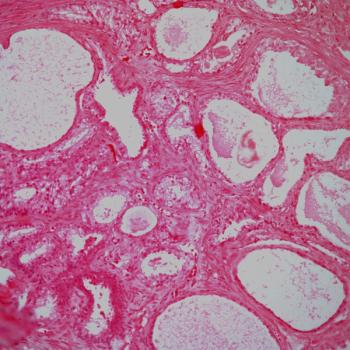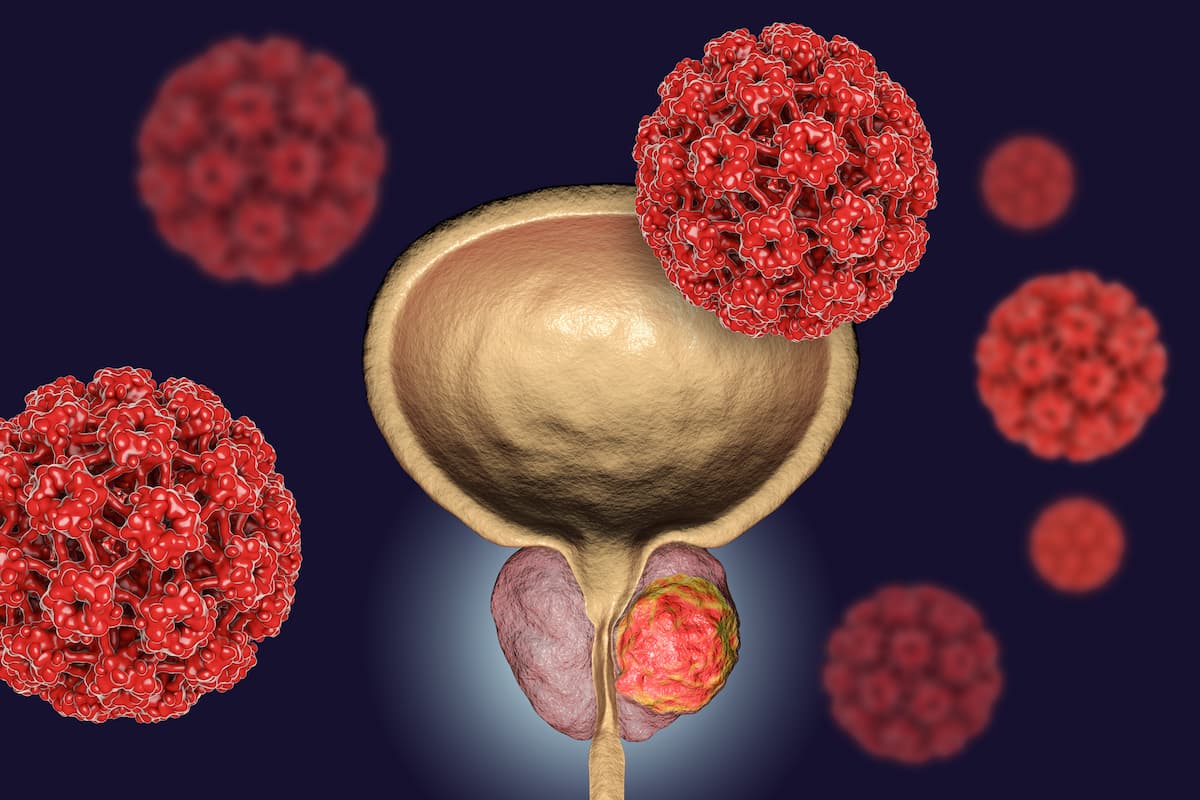
Prostate Cancer
Latest News
Latest Videos

More News

Radiographic progression-free survival outcomes with olaparib plus abiraterone acetate and prednisone appear to be consistent with prior analyses of the phase 3 PROpel trial.

Docetaxel plus standard of care may be beneficial among patients with prostate cancer and low prostate-specific antigen levels who do not have any highly effective treatment options, says Anthony D’ Amico, MD, PhD.

Financial constraints and a lack of education among some patients and providers must be addressed to improve the real-world use of certain prostate cancer therapies, says Neeraj Agarwal, MD.

Results from a phase 1 of study of 177Lu-PSMA-617 in combination with pembrolizumab show significant anti-tumor activity with low toxicity in patients with metastatic castration-resistant prostate cancer.

With the announcement that the supply of 177Lu vipivotidete traxetanis now unconstrained, the targeted radioligand will be available in over 200 centers for patients with prostate cancer.

Novel anti-PSMA monoclonal antibody rosopatamab is capable of carrying a bigger payload of radiation particles, which may potentially reduce doses for patients with prostate cancer, says Neeraj Agarwal, MD.

Investigators will assess the safety and preliminary anti-tumor activity of ONCT-534 in metastatic castration-resistant prostate cancer in the phase 1/2 study ONCT-534-101.

The Canadian approval of relugolix for advanced prostate cancer is based on findings from the phase 3 HERO study.

Findings from recent studies support the use of artificial intelligence-based tools in the context of radiation therapy for patients with localized prostate cancer, according to Neeraj Agarwal, MD.

Data from a phase 2 trial suggests that earlier use of abiraterone acetate/prednisone plus cabazitaxel may elicit clinical benefit in patients with metastatic castration-resistant prostate cancer.

Median radiographic progression-free survival appears to be higher in patients with metastatic castration-resistant prostate cancer treated with 177Lu-PSMA-617 than those receiving androgen receptor pathway inhibitors.

Data from the MAGNITUDE trial support the positive benefit/risk profile of niraparib plus abiraterone acetate and prednisone as a treatment for those with BRCA-mutated metastatic castration-resistant prostate cancer.

Subgroup analyses in the phase 3 KEYNOTE-641 trial do not indicate an overall survival improvement with pembrolizumab plus enzalutamide in metastatic castration-resistant prostate cancer.

Findings from the ENZA-p study provide evidence for enhanced anti-cancer effects with 177Lu-PSMA-617 plus enzalutamide in patients with metastatic castration-resistant prostate cancer.

Findings from a meta-analysis highlight the effect of varying censorship criteria for the definition of surrogate end points in localized prostate cancer randomized clinical trials.

Germline testing may elucidate important mutations in patients with metastatic prostate cancer who may be eligible to receive treatment with PARP inhibitors, according to Neeraj Agarwal, MD.

Over half of all patients with small cell neuroendocrine prostate cancer treated with BXCL701 and pembrolizumab were alive at 1 year in a phase 2 trial.

In this September edition of Snap Recap, we share our highlights from Prostate Cancer Awareness Month, news in the breast cancer space, and the latest FDA updates.

Artificial intelligence programs may help introduce new care strategies that minimize the risk of adverse effects in patients with prostate cancer, according to Wayne G. Brisbane, MD.

An artificial intelligence algorithm appears to create accurate focal treatment margins in patients with prostate cancer, according to Wayne G. Brisbane, MD.

Artificial intelligence may be useful in screening for prostate cancer in patients with elevated prostate specific antigen levels who have undergone MRI, according to Wayne G. Brisbane, MD.

Across several clinical trials, Unfold AI appears to help in prostate cancer treatment selection and follow-up.

Jonathan Leeman, MD, indicates that the longer-follow is necessary to confirm late toxicities and disease control associated with adaptive radiotherapy in patients with prostate cancer.

The FDA sets a Prescription Drug User Fee Act date in the fourth quarter of 2023 for its decision regarding enzalutamide as a treatment for those with non-metastatic hormone-sensitive prostate cancer with a high-risk of biochemical recurrence.

Combination treatment with cabozantinib and atezolizumab did not produce any new safety signals in the treatment of those with metastatic castration-resistant prostate cancer in the phase 3 CONTACT-02 trial.



















































